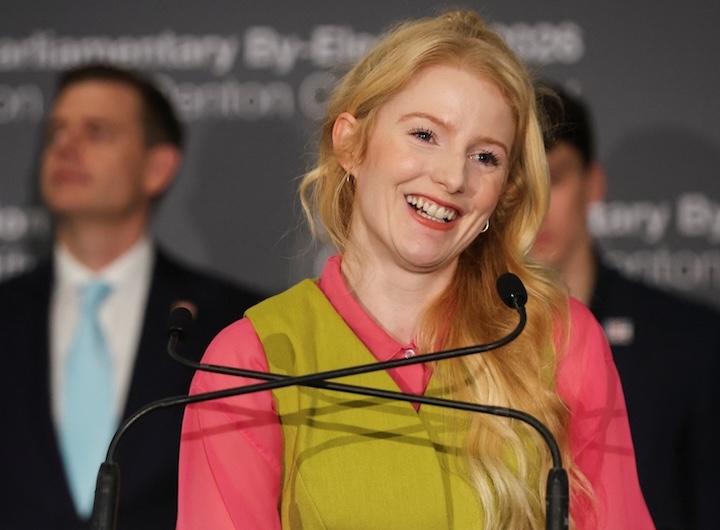by Aron Cramer*
We are at a hinge point in history. The displacement and destruction arising from COVID-19 and the invasion of Ukraine have sealed the passing of the post-Cold War world. Moreover, these acute shocks have revealed and exacerbated deep societal divisions and inequities.
Amidst this intense change, numerous shared global challenges require urgent action:
- A just and inclusive energy transition to limit global warming to under 2°C.
- Preservation of nature and ecosystems, including food systems, so people thrive.
- Action to address income inequality.
- Replacing systems thwarting racial and gender equity.
- Protection of human rights, the rule of law and democracy.
Human progress depends on how well we respond to the defining dilemma of our time: how do we resolve interdependent global challenges when our world is fragmenting in profound ways?
Global challenges: misinformed and polarized
The “Great Fragmentation” is driven by multiple factors. Information technologies amplify misinformation and tribal behaviours, reinforced by the rise of the “splinternet.” There is then environmental collapse that exacerbates social tensions and political polarization, democratic decline, and geopolitical splits that drive a wedge between and within countries. In addition, social changes that reflect both important progress and powerful backlash and rising economic precarity and inequity further fragment societies.
Each force of fragmentation is powerful. Their overall impact is multiplied by their interconnections, which increases the difficulty of facing them. Political opportunists weaponize social divisions. Social media accelerates fragmentation. And maximalist thinking (“my issue is the only one that matters and it’s existential”) interferes with coalition building, even between potential allies.
In this dynamic and complex context, a new, more public-spirited approach to business leadership is needed, with three key elements:
1. Innovation and collaboration to accelerate progress towards existing commitments.
2. Contribution to a modernized and strengthened social contract.
3. A renewed focus on constructive public policy solutions.
These steps will help resolve global challenges and address fragmentation at the source, providing a “binding agent” enabling greater social equity cohesion and consensus.
Innovation and collaboration
While business has made numerous new commitments, there is scepticism about the degree to which ambition turns into action with real impacts. Those questions deserve an answer.
Business has embraced a vision of a net-zero economy. Now is the time to redouble efforts to make net-zero a reality. Key steps include short- and medium-term targets, commitments to a just and inclusive energy transition and strengthened efforts to achieve Scope 3 reductions.
Similarly, many businesses have supported advancing equity, inclusion and justice. Backing up intention with action is essential, reinforced by efforts to address the seismic changes in work, lingering racial and gender wealth gaps and growing income inequality.
Corporate governance reforms are also much needed. For example, progress on board diversity and environmental, social and corporate governance (ESG) competence will help Boards steward companies toward developing truly resilient business strategies.
These efforts should accompany a renewed commitment to innovation and collaboration. Incremental improvements to existing models won’t achieve the systemic change required. Innovative products and new coalitions are emerging, enabling progress towards the end of the internal combustion engine, decarbonization of heavy industry and new services that meet communities’ needs, which must be accelerated.
Modernizing the social contract
The past few years have revealed and exacerbated flaws in our social contracts, partly because their basis is in social structures, economic models and demographics that defined society in the post-war world. They fail to account for new technologies and fundamentally new questions, not least the climate crisis. Our emerging era requires businesses to take an active role, respecting the role of government fully, to redefine the social contract for the 21st century for all people to participate fully in society and the economy.
Key features of a contemporary social contract should advance lifelong learning, portable benefits and the extension of labour protections to fast-growing contingent work arrangements. That will provide greater social protections and mobility for all and foster dynamic and innovative workforces that enable businesses to thrive.
The social contract also needs to consider the urgent need for a just and inclusive energy transition, providing transition assistance to people and communities disadvantaged by this shift, considering intergenerational equity and enabling access to clean energy for all.
Finally, the new social contract must account for the implications of new technologies, enabling broad access and norms that enable innovation to continue, with protections for impacts on human rights and privacy.
Increased focus on policy solutions
The primacy of the market economy that marked the immediate post-Cold War is receding into history. Market solutions alone will not be enough to solve the significant global challenges we face; the time is now for businesses to shift to more active and constructive engagement on public policy solutions.
Many business leaders may be uncomfortable in this role, seeing political landmines and the risk of alienating key constituencies as more powerful than opportunities to achieve progress. This risk-reward analysis misses the big picture.
Addressing our shared global challenges requires policy frameworks that align incentives and transcend divisions. It is in the self-interest of business and the public interest for the private sector to actively seek smart policy.
One essential step is to reorient capital markets toward creating long-term value. Advocacy for universal standards for reporting and disclosure that encompass social and environmental value creation, such as the International Sustainability Standards Board (ISSB) and Task Force on Climate-Related Financial Disclosures (TCFD), is crucial. Businesses should also step in to strengthen tax transparency and fairness. That will produce more realistic measures of value, improve economic fairness and alleviate one of the main causes of fragmentation: the sense that the economy is stacked against the average person.
Progress is also needed to reduce the primacy of trade associations, which too often take a reflexively hostile approach to forward-looking policy solutions. Their game plan no longer works – if it ever did – and the companies that enable this provide a deep disservice.
A turning point for human progress
Whether the turning point we face leads to a bright or alarming future depends on whether we can overcome and heal our deep fragmentation.
The models that have defined the past three decades won’t suffice. By translating business ambition into real action, modernizing and strengthening our social contracts and reorienting market and policy frameworks, we can generate solutions to the shared global challenges that will define human progress in the decades to come.
*President and Chief Executive Officer, BSR
**first published in: www.weforum.org




 By: N. Peter Kramer
By: N. Peter Kramer
